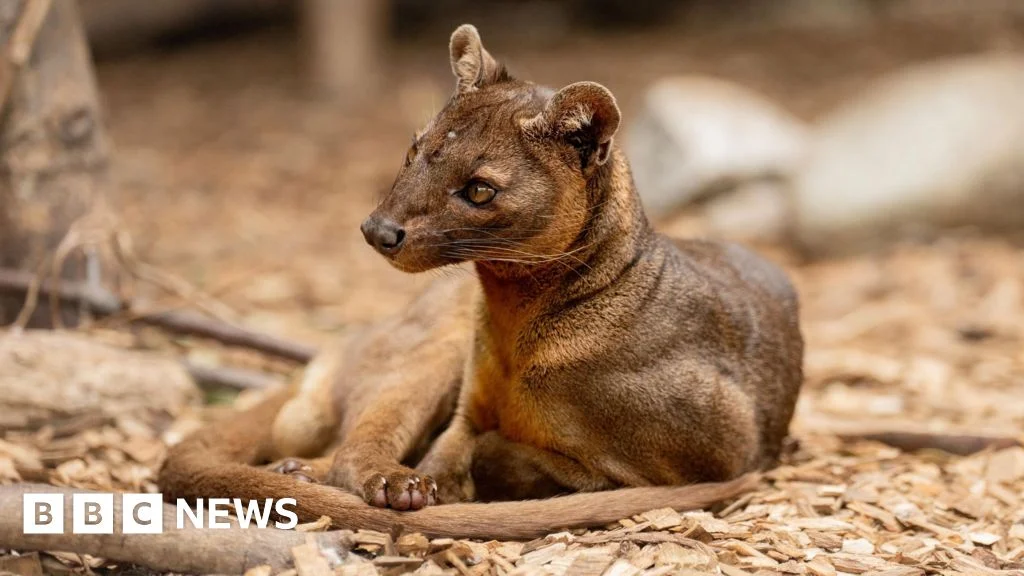
Breeding Hope: Endangered Fossa Arrives at Chester Zoo
A rare male fossa has made a significant journey from the United States to Chester Zoo, highlighting the global efforts to conserve this unique species. The fossa, a cat-like mammal native to Madagascar, faces severe threats from deforestation, leading to its status as an endangered species. With fewer than 2,500 fossas believed to be left in the wild, the arrival of this fossa is a beacon of hope for conservationists.
Named Zaza, the seven-year-old male has traveled from San Diego Zoo after being genetically matched with Chester Zoo's female fossa, Shala. This pairing is part of an international breeding program aimed at preserving the fossa population. Mark Brayshaw, Chester Zoo's head of mammals, emphasized the importance of these efforts, stating that they are crucial for ensuring the species' survival for future generations.

Shala, who arrived at Chester in 2018, has previously had a litter of pups and has been involved in a project monitoring mating calls to better understand the breeding habits of fossas in the wild. Interestingly, female fossas come into season just once a year, making their breeding time critical. This unique mating behavior, characterized by an increase in vocalization, allows researchers to pinpoint their needs and habitat requirements in Madagascar.

As Zaza prepares for his introduction to Shala, carekeepers like Jack Cunningham are cautious yet hopeful. Lucy Pearson from San Diego Zoo described Zaza as a "very energetic and well-tempered" animal, noting his curious personality. This description not only portrays Zaza as an individual but also signifies the potential he holds in contributing to the European fossa population.
While it was tough for the team at San Diego Zoo to say goodbye, they reflect on the broader context of this transfer; it’s not just about one animal, but about cultivating a sustainable future for an endangered species. Candice Dymek from San Diego Zoo expressed excitement about Zaza’s new role in fostering conservation efforts in Madagascar.

Zaza's journey and potential future offspring represent a step forward in the collective fight against extinction. As we witness these compelling collaborations across global zoos, one can't help but wonder: What can we do to support the conservation of the fossa and other dwindling species in their natural habitats? Share your thoughts and explore ways to make a difference.